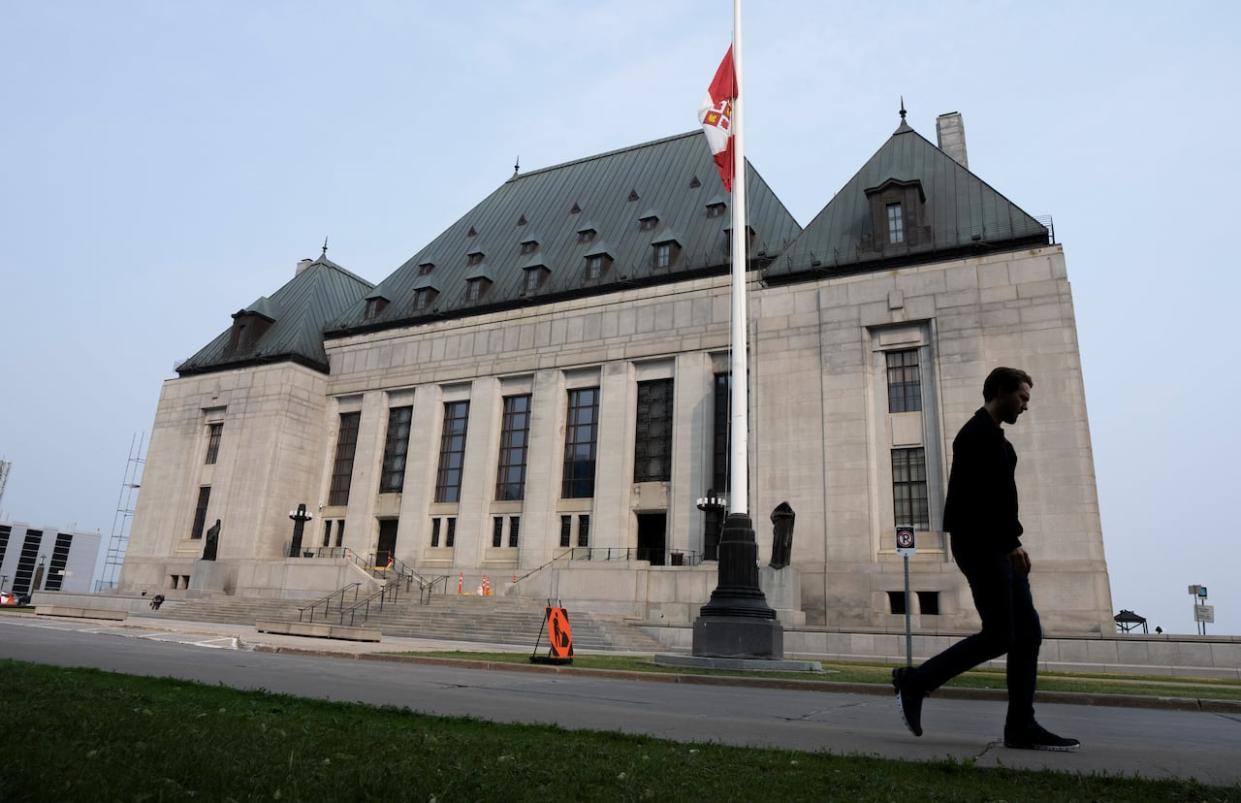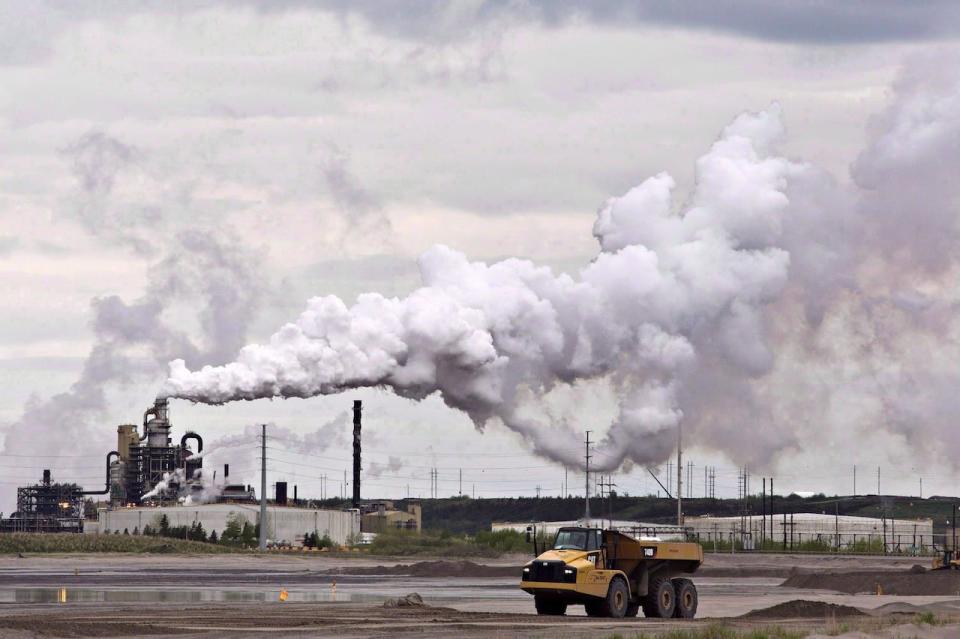Supreme Court to deliver judgment on environmental impact legislation on Friday

The country's top court is set to deliver a highly anticipated judgment Friday morning on the federal government's environmental impact legislation, one that will provide clarity on an area of law that has long been hotly debated.
The Impact Assessment Act (IAA), previously known as Bill C-69, was given royal assent in 2019. The act allows federal regulators to assess the potential environmental and social impacts of various resource and infrastructure projects.
Cases such as this don't come along very often, noted David Wright, an associate professor at the Faculty of Law at the University of Calgary.
"This is a big deal," said Wright, who was also co-counsel for an intervenor in the case.
"The words of the court, the opinion of the court, really will define the landscape for federal impact assessment and environmental assessment for decades to come."
Alberta filed its constitutional challenge with the Alberta Court of Appeal in September 2019, and was supported by the governments of Saskatchewan and Ontario, three First Nations and the Indian Resource Council. Various environmental and legal groups, as well as other First Nations, supported Ottawa.
Alberta's top court called law unconstitutional
In May 2022, Alberta's top court released a non-binding opinion that said the law was unconstitutional. Because this is what's known as a "reference case," the process effectively boils down to provincial and federal governments asking courts for advisory opinions.
All five justices said climate change was an existential threat to Canada, but the majority opinion said the IAA, too, represented the same kind of threat.
"That is the clear and present danger this legislative scheme presents to the division of powers guaranteed by our Constitution and thus, to Canada itself," the opinion reads.
After the release of the Alberta court's decision, then-premier Jason Kenney hailed the decision, calling it a "huge win" for the people of Alberta while adding he fully expected an appeal from the federal government.
"Let me put them on notice. I believe the majority of Canada's provinces will stand up for the federation, for the constitution, for jobs in the economy, by supporting Alberta when this reaches the Supreme Court of Canada," Kenney said.
The federal government did, indeed, quickly appeal the opinion, asking for the Supreme Court to provide its opinion on the act's constitutionality. The Supreme Court held hearings on the act in March 2023, and will release the results of those deliberations on Friday.

Jason Kenney answers questions during a press conference in a file photo from his time as premier in 2022. After Alberta's top court deemed the federal government's environmental impact legislation unconstitutional, Kenney said he was 'pumped up' about the decision, which he had been waiting for for a long time. (Chad Hipolito/The Canadian Press)
Wright, the associate professor at the Faculty of Law at the University of Calgary, said this is about the shortest timeframe expected for the decision by legal experts.
He said most people who study this area would agree precedent is on the side of the federal government — the main precedent being the 1992 Friends of the Oldman River Society v Canada case — but there are still open legal questions and areas of vulnerability.
"The live issues in this case really revolve around how broadly the federal government can scope its assessment of any given major infrastructure and natural resources project, particularly those that fall largely within areas of provincial jurisdiction," Wright said.
Alberta premier hoping for favourable decision
The IAA has long been contentious amongst Alberta's conservatives — often being referred to as the "no more pipelines act" — and remains so for Kenney's successor.
In a statement, Alberta Premier Danielle Smith said she was hoping for a favourable outcome on Friday.
"One of the key factors impacting our ability to complete major projects, to improve trade infrastructure and access to foreign markets, are regulatory delays caused by Bill C-69," Smith wrote.
"I hope that the Supreme Court of Canada will recognize that these matters lie within the legislative authority of the provinces, guaranteed under the Constitution of Canada."

Alberta Premier Danielle Smith speaks to a business forum in September. Smith said the Impact Assessment Act, previously known as Bill C-69, had negatively impacted Alberta's ability to complete major projects. (Jeff McIntosh/The Canadian Press)
A spokesperson in the office of federal Environment Minister Steven Guilbeault, meanwhile, said the federal government is confident the Impact Assessment Act is constitutional.
"This Act put in place better rules for major projects that restore trust, protect the environment, advance reconciliation, and ensure good projects can move forward in a timely way so we can grow our economy and create good jobs," the spokesperson wrote.
"The government of Canada worked extensively with legal experts and provincial and territorial governments to develop the Impact Assessment Act."

Minister of Environment and Climate Change Steven Guilbeault speaks at an event in September in Ottawa. A spokesperson in Guilbeault's office said the government was confident the Impact Assessment Act is constitutional. (Adrian Wyld/The Canadian Press)
Joshua Ginsberg with Ecojustice, an environmental law charity, said the organization hopes to see the Supreme Court uphold the act and confirm the ability of the federal government to "use effective laws to tackle interlocking environmental crises."
Ecojustice intervened before the Alberta Court of Appeal and at the Supreme Court of Canada.
"At a time when Canada is facing the looming impacts of a climate and biodiversity emergency, we need good environmental laws that work for all Canadians," Ginsberg said.
"All governments, including federal and provincial, have a responsibility to take action to fight climate change, the massive loss of biodiversity, and dangerous pollution impacting communities."

A dump truck works near the Syncrude oilsands extraction facility near Fort McMurray, Alta., in 2014. The Impact Assessment Act allows federal regulators to consider the environmental and social impacts of various projects. (Jason Franson/The Canadian Press)
A spokesperson with the Canadian Association of Petroleum Producers said the organization would wait for the decision to be released before offering any comments. Press secretaries for Alberta's energy and justice ministries also declined to comment.
The decision is expected to be delivered on Friday at 9:45 a.m. E.T.


